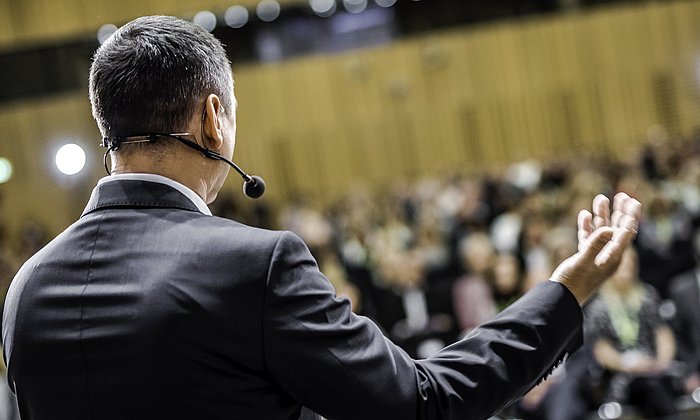Pay gap between top management and employees slightly narrowing
Further decrease in DAX executive pay

Management board members with companies listed on the German DAX exchange earned an average of 3.4 million euros in 2019, or 0.3 percent less than in 2018. That means that the average pay of these top executives decreased for the second consecutive year – which was not the case once in the previous decade. During that period, there was a clear upward trend.
Because gross wages increased by 2.6 percent in Germany in 2019, the gap between the earnings of board members and their employees narrowed a little further. When the 2018 and 2019 figures are combined, executive pay declined by 3.8 percent while nominal wages rose by 5.7 percent. Executive pay now exceeds that of rank-and-file staff by a factor of 49, as compared to a multiple of 52 previously.
Decrease in profit-linked bonuses
The lower payouts to board members reflects a 3.5 percent decrease in bonuses (variable cash compensation), which depend primarily on companies' profits. The earnings of DAX companies were down 15 percent in 2019. However, 22 of the 30 listed companies have also begun tying bonuses to non-financial factors such as sustainability targets.
There have been slight increases, too, in the agreed base salaries as well as payments linked to the long-term performance of a company's share price. The DAX index gained more than 25 percent in 2019. The three components each account for approximately one third of total compensation.
"Incentives for long-term perspective in crisis"
"In recent years, executive compensation has increasingly been geared to companies' long-term performance. That may prove very important in the current crisis, which is overshadowing every recession seen since the Second World War," says Prof. Gunther Friedl of the TUM Chair of Management Accounting, who headed the study. "The board members need to prepare their companies for an uncertain future. A good compensation system creates the right incentives for that kind of long-term outlook."
"The effects of the coronavirus crisis will be a real acid test for the true impact of compensation systems. It will become apparent whether they live up to the 'pay for performance' principle," says DSW Chief Managing Director Marc Tüngler: "We would take a dim view of any crisis-related adjustment to the performance targets leading to an upward correction in compensation. Nor do we believe that an increased weighting of fixed compensation is the right response to the coronavirus crisis. If companies are cancelling dividends and cutting employees' hours, executives have to make sacrifices, too."
Women in charge of executive areas with lower pay
Female board members had average earnings of 3 million euros and thus again lagged behind their male counterparts, who earned an average of 3.1 million euros, excluding CEOs. One reason for this is that female executives work more often for smaller companies and are assigned to areas that command less compensation. Following the departure of SAP Co-CEO Jennifer Morgan, it is again the case that not a single DAX company has a female CEO. Board members from other countries earned more than those from Germany in 2019 (3.6 million euros vs. 3.4 million euros).
VW CEO now the top earner
As in the previous year, Volkswagen board members earned the most. Despite a decrease of 8 percent, with average compensation of 5.7 million euros, they have a slight edge over their counterparts at Germany's most valuable company, SAP, who received 5.6 million euros. In third place is Merck, which paid an average of 5.5 million euros.
CEOs earned 5.3 million euros on average. After the departure of SAP CEO Bill McDermott, who was the highest-paid executive in 2018, Herbert Diess of Volkswagen, with 9.9 million euros, now holds that distinction. Merck CEO Stefan Oschmann, with 8.5 million euros, ranks second, ahead of Joe Kaeser of Siemens, who earned 7.2 million euros last year.
- Methodology: The study compares the 2019 figures of DAX-listed companies with the previous year including companies that were not yet listed on the index in that period. There was one change in the DAX in 2019.
The figures for Wirecard were not yet available. - All figures on executive pay and speeches at the press conference (German website)
Technical University of Munich
Corporate Communications Center
- Klaus Becker
- klaus.becker@tum.de
- presse@tum.de
- Teamwebsite
Contacts to this article:
Prof. Dr. Gunther Friedl
Technical University of Munich
Chair of Management Accounting
Tel.: +49 89 289 25801
gunther.friedl@tum.de




